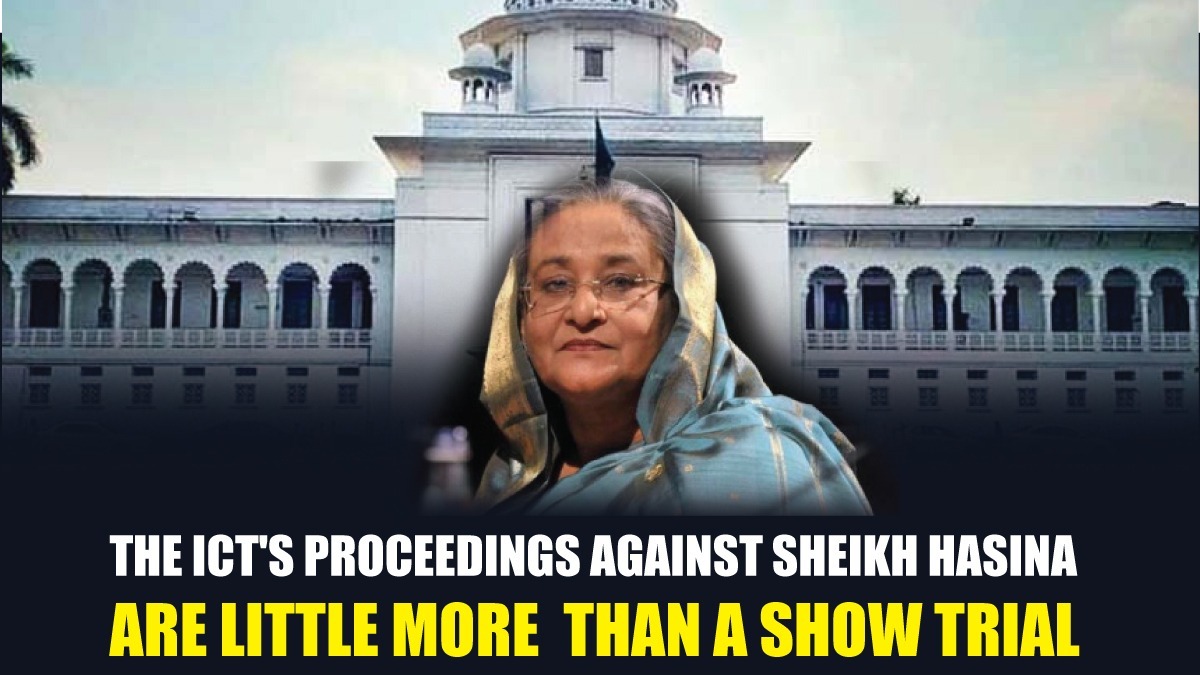250
Published on July 5, 2025A Bullet, a Bag, and a Rotten System
What happened at the airport last week says a lot about where we are as a country—and where the so-called “student leaders” have taken us.
Asif Mahmud Sajib Bhuiyan, once a familiar face in the anti-discrimination student movement and a leader during the 2024 quota reform protests, was caught carrying a gun magazine in his cabin bag before boarding a Turkish Airlines flight to Morocco. No weapon—just the magazine. But even that raises serious questions. Why would a cabinet-level advisor be carrying ammunition in the first place? Is this what power looks like in Bangladesh 2.0?
Discovery of Ammunition in Asif Mahmud’s Bag Sparks Questions
This wasn’t just a random mistake. It’s part of a growing pattern where student leaders-turned-power brokers operate above the law, escape scrutiny, and accumulate wealth and influence at a rapid pace. The media barely had time to report the story before it vanished—within five minutes—from most platforms. No follow-up. No questions. Just silence.
Once hailed as the voice of change, these leaders now seem more interested in silencing criticism, cutting shady deals, and flaunting luxury than standing up for ordinary people. From Dubai shopping sprees to hometown motorcades, from secret tenders to missing relief funds, the transformation is hard to ignore.
This article takes a closer look at how a new generation of student leaders—Asif, Sarjis, Hasnat, Tuhin, Nahid, and others—have gone from protest stages to positions of unchecked power. What we find is not just disappointment, but a deeper betrayal of the very people they once claimed to represent.
Let’s unpack how we got here.
Asif Mahmud’s Dangerous Descent Shows What Happens When Power Goes Unchecked
It started with a routine airport check, but what it exposed was anything but routine. On his way to board Turkish Airlines flight TK-713 to Morocco, State Advisor Asif Mahmud Sajib Bhuiyan was caught with something highly unusual in his cabin bag: a loaded gun magazine. No firearm was found, but that only raises more questions. Why was a senior government advisor, someone with VIP status and state-provided security, carrying ammunition in his luggage? Does he regularly carry weapons? Is this normal behaviour for someone holding a ministerial position?
AK-47 rifle magazine found in Adviser Asif Mahmud’s hand baggage
And perhaps most disturbingly, why did the story vanish within minutes?
The report, first published by Dhaka Post, was removed in less than five minutes after going live. Multiple journalists confirmed the takedown happened under pressure from the top. One reporter even wrote in a private group, “The story didn’t even survive five minutes.” That tells you everything about the state of press freedom in Bangladesh 2.0—a regime quick to boast about media independence, but even quicker to erase inconvenient truths.
But this was not an isolated incident. It was the symptom of a larger rot. Asif Mahmud’s rise from a student activist to a state advisor came with promises of reform and anti-discrimination. But idealism quickly turned into impunity and abuse of power.
This is not the first or only incident involving Asif.
Not long after Asif was appointed as State Advisor to the Ministry of Local Government, Rural Development and Cooperatives, his father's construction company was quietly listed as an official contractor under the Local Government Engineering Department (LGED). This wasn’t some long-established contractor with a history of public works. Instead, records show that on March 16, barely weeks into Asif’s new political role, the executive engineer of LGED in Comilla formally enlisted the company—a move that, in any healthy democracy, would raise red flags and trigger investigations.
Why Is a Top Advisor’s Father Linked to a Contractor License Scandal
This is not just a coincidence; it is textbook nepotism. It reveals how public office is being used to secure private advantage. In a country where small businesses and contractors routinely struggle to navigate the corrupt and opaque tendering system, the sudden inclusion of the advisor’s family-owned company—without public scrutiny or open competition—exposes just how deep the rot goes. No bidding war. No oversight. Just access, granted through bloodlines and backdoors.
But the web of favoritism doesn’t stop with family ties. It extends directly into Asif’s inner circle, where power and privilege have become currency.
Take Moazzem Hossain, Asif’s former private secretary—a name that has surfaced repeatedly in connection with lobbying and brokerage scandals worth hundreds of crores. Moazzem wasn’t simply managing Asif’s calendar. By numerous accounts, he acted as the unofficial broker for the advisor’s office, turning influence into income. Need a contract approved? A transfer sanctioned? A favour from the ministry? Moazzem was the man to approach—for a price.
Whispers in administrative circles describe how Moazzem controlled access to the advisor, facilitating deals in exchange for kickbacks. In return, he reportedly helped create a closed loop of business and political interests, enriching those close to the advisor while shutting out anyone without connections.
ACC examines corruption allegations against Moazzem Hossain
The accusations have been serious and specific—from rigged procurement deals to orchestrated postings, all managed through Moazzem’s quiet but powerful hand. And yet, no serious investigation has been launched, no transparency offered to the public. Like the airport incident, the system seems to protect the powerful rather than question them.
These are not isolated cases. Together, they form a disturbing pattern—a descent from public service into private profiteering, made possible by unchecked power and deliberate silence.
Rise of Sarjis Alam and His Corruption
As Asif Mahmud Sajib Bhuiyan consolidated power, he didn’t just surround himself with bureaucrats or advisors—he surrounded himself with enforcers. One name that keeps coming up is Sarjis Alam, a former student activist who has quietly become one of the most feared figures in his orbit.
Sarjis started out like many others, positioning himself as a grassroots leader standing up against corruption. In the early days, he was best known for leading aggressive campus campaigns and organising mobs to remove so-called “dalals” (government brokers). These actions were framed as part of a moral crusade. But behind the chants and megaphones was a growing pattern of intimidation and control.
From Zero to Millionaire: The Journey of Sarjis Alam
Recently, Sarjis returned to his home district for what he called an election campaign. But what caught everyone’s attention wasn’t his message—it was his grand arrival. He flew from Dhaka to Syedpur and rolled into his village with a fleet of over 100 vehicles in tow. The show of force—complete with motorcades and entourages—sparked confusion, concern, and even mockery. People asked the obvious: how does a former tuition teacher now afford such a lavish display of wealth and power?
Sarjis Alam holds grand showdown on return to hometown
Locals now describe him as someone who runs his own mini-empire. He’s rumored to control access to tenders, exert influence over university elections, and even collect “fees” for protection and favors. Extortion and backdoor deals have become part of the story. And all of it, according to those familiar with his operations, happens with quiet approval from higher up the chain.
What’s more troubling is how bribes are repackaged as gifts, wrapped in politeness and passed off as “tokens of appreciation.” This “gift economy” has become a convenient way to hide corruption in plain sight. And with no oversight, the line between political leadership and street-level intimidation has all but disappeared.
In many ways, Sarjis no longer behaves like a political activist. He behaves like a warlord. His network isn’t built on trust or ideas—it’s built on fear, money, and access. And through all this, he's maintained close ties with Asif, raising uncomfortable questions about how power is being used—and who it's being handed to.
If Sarjis Alam is the face of this “new Bangladesh,” then the public is right to be alarmed.
Hasnat Abdullah & Gazi Salahuddin Tanvir Don't Fall Far Behind
In the unfolding drama of Bangladesh’s new political elite, Hasnat Abdullah and Gazi Salahuddin Tanvir have carved out their roles not as reformers but as power brokers. Their rise isn’t based on transparency, integrity, or public service—it’s built on influence peddling, institutional capture, and a culture of fear.
Take Hasnat Abdullah. His name surfaced in one of the most chilling examples of media suppression in recent times: the mass firing of journalists from Somoy TV. Multiple sources allege that Hasnat used his personal influence to pressure executives at City Group—Somoy TV’s parent company—into carrying out the dismissals. Why? To silence dissent and punish perceived enemies. This wasn’t about editorial direction or financial restructuring. It was political revenge, cloaked in corporate compliance.
Student protesters entered Somoy TV owner’s offices, journos sacked
But Hasnat’s influence doesn’t end at the newsroom door. He has been accused of routinely intervening in corporate affairs, using his connections not to improve governance but to settle personal scores or advance political allies. In a system where few dare to push back, his whispers become orders—and the consequences are real.
Then there’s Gazi Salahuddin Tanvir, Joint Secretary of the National Coordination Platform (NCP), who works closely with Hasnat. The pair has been repeatedly accused of financial misconduct, ranging from embezzlement to manipulating government contracts for personal gain. Tanvir, in particular, has a reputation for backdoor lobbying, forcing the appointment of Deputy Commissioners (DCs) and meddling in sensitive institutions like the National Curriculum and Textbook Board (NCTB) to channel contracts toward their preferred networks.
Explosive Revelations Shake Image of Salauddin Tanvir
These aren’t isolated incidents. They’re part of a pattern—a political culture that rewards loyalty, punishes transparency, and thrives on unaccountable influence.
And they raise urgent questions:
Because if men like Hasnat and Tanvir are calling the shots behind closed doors, then the public deserves to know whose democracy this really is.
Nayeem, Tuhin Farabi, and Naheed Islam: All On The Same Path
In any functioning democracy, allegations involving hundreds of crores in public funds would trigger immediate investigations, suspensions, or at the very least, public scrutiny. But in Bangladesh 2.0, even the most outrageous accusations disappear into thin air—especially when the accused are closely connected to the ruling clique.
Start with Tuhin Farabi, a student representative who was once presented as a voice for reform. Instead, he became a textbook example of how unchecked student leadership morphs into big-money embezzlement. Tuhin is accused of siphoning off over ৳320 crore—an amount so large it should’ve made front-page headlines. Yet, there’s been no audit, no legal action, no consequences. It’s almost as if he was never supposed to be held accountable in the first place.
Then there’s Naheed Islam, former Information Advisor and now the chief of the National Coordination Platform (NCP)—a group many now view as a behind-the-scenes power hub rather than a governance body. Under Naheed’s tenure, allegations of corruption were routinely swept under the rug, especially when they involved people in his inner circle.
Take his personal assistant, Atiq Morshed, who allegedly embezzled ৳150 crore through Nagad, a digital financial service. On top of that, Atiq is said to have rewarded family members with top-tier jobs in government-affiliated projects, despite lacking qualifications. If these claims had surfaced in any other setting, they’d spark outrage. Under Naheed’s watch? Silence.
Turmoil at Nagad as corruption allegations swirl
What’s even more suspicious is Naheed’s own financial transformation. Before joining the government, he reportedly claimed he had no active bank account—a modest image that played well with the public. But today, rumours swirl about his massive holdings in cryptocurrency, with estimates placing the figure in the hundreds of crores. Whether it’s offshore wallets, anonymous digital transfers, or sudden spikes in asset value, Naheed’s wealth trajectory reads less like an honest living and more like a crypto-enabled escape route for illicit funds.
Meanwhile, Nayeem, another name frequently mentioned in connection with this tight-knit circle, operates in the shadows, often acting as a fixer and dealmaker between student leaders, government officials, and private business interests. His role might not always be visible, but his influence is woven into the very architecture of this corruption network.
Together, Tuhin, Naheed, Atiq, and Nayeem form a new kind of political machine—one that launders legitimacy through student activism, cleans money through digital platforms, and hoards power through silence.
It’s a blockchain of corruption, where every piece fits neatly into the next, and the ledger of wrongdoing is always encrypted, hidden behind connections, intimidation, and institutional complicity.
Student Power Is No Longer About Justice in Bangladesh 2.0
What began with hope has ended in disillusionment.
There was a time—not long ago—when student leaders in Bangladesh stood at the frontlines of protest, armed only with slogans and conviction. They marched against injustice, challenged authority, and promised to bring in a new political culture that valued transparency, equality, and accountability.
But somewhere along the way, that promise broke. And what replaced it wasn’t just disappointment—it was something darker.
These student leaders:
The very individuals who claimed to speak for the people now move through VIP gates, silence journalists, and broker deals worth hundreds of crores behind closed doors. Idealism has been traded for influence. Resistance has become repression. Activism now serves as a stepping stone to unchecked power, not public service.
And this isn’t just about a few bad actors. It’s a systemic betrayal, made possible by an environment where institutions have no spine, media faces constant pressure, and connections matter more than merit. The rise of men like Sojib Bhuiyan, Sarjis Alam, Hasnat Abdullah, and Naheed Islam doesn’t just tell us who they are—it tells us who we’ve become as a nation.
Bangladesh 2.0 was supposed to be different. It was supposed to be better. But if this is the new model of student power—riddled with nepotism, intimidation, and exploitation—then perhaps it’s time to stop celebrating it and start calling it what it really is:
A power grab in the clothes of revolution.
The next generation deserves leaders who don’t just chant about justice, but live it. Until then, we’re left with a cruel irony: those who once spoke truth to power have now become the power that fears the truth.














